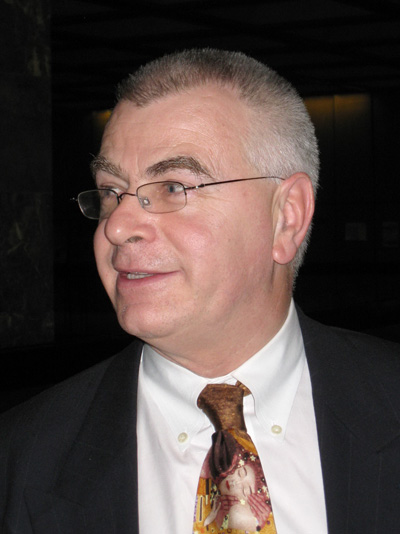Patterns in the brain topic of BGSU lecture

BOWLING GREEN, O.—Do you ever have a song that gets stuck in your head, or a series of thoughts or memories that seem to keep playing over and over in your mind, like a broken record? These out-of-control mental patterns are thought to be due to learned activity patterns in sets (assemblies) of neurons.
György Buzsáki, M.D., Ph.D., will discuss his research into why this occurs and its implications for other brain functions as the next speaker in Bowling Green State University’s annual J.P. Scott Center for Neuroscience lecture series. His talk, “Brain Rhythms and Cell Assembly Sequences in the Service of Cognition,” will be held at 6:30 p.m. Dec. 1 in the Bowen-Thompson Student Union Theater, preceded by a 6 p.m. reception.
Buzsáki is the Board of Governors Professor at the Center for Molecular and Behavioral Neuroscience at Rutgers University.
The first time you ever heard the “Rubber Ducky” song, or the Pledge of Allegiance, it activated a set of neurons in your brain that served as a code for that input. According to the famous neuroscientist Donald Hebb, when these sets of active neurons fire together during the song or pledge, or on whatever occasion, they develop strong interconnections with one another. These connections become so strong that the neural firing pattern can happen over and over again, even in the absence of the original song or other event.
When Hebb first proposed these ideas about neural cell assemblies and synaptic plasticity (learning) back in 1949, they were really just theoretical ideas. Dr. Buzsáki is a contemporary neuroscientist who has provided tremendous empirical work and theoretical insight to advance our understanding of how these assemblies actually work, said Dr. Verner Bingman, Distinguished Research Professor of psychology at BGSU. Buzsáki has helped to reveal where in the brain these assemblies exist, and is one of the foremost leaders in our efforts to understand just how the assemblies work to provide conscious memory, thought and reasoning.
###
(Posted November 23, 2010 )
Updated: 12/02/2017 01:07AM
